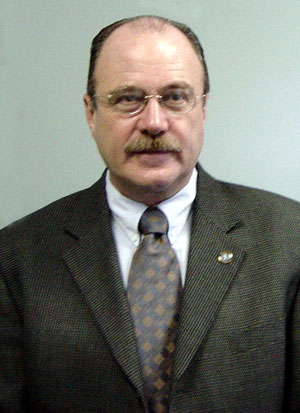Ontario’s newly regulated paralegals will soon have the same trust account rules as lawyers, but some benchers say the two-year transitional period is too long.
According to the new requirements passed by Convocation last month, paralegals are being given more than two years to transfer money collected before they were licensed to a trust account.

That transitional period is set to last from the day the paralegal receives the licence until May 1, 2010. After that date, any fees from services not yet provided have to be transferred to the trust account.
However, when they receive their licence, paralegals will have to handle all new incoming funds in accordance with the trust account rules.
Under the new paralegal licensing regime, introduced as part of Bill 14 in October 2006, independent paralegals in the province who have three years of experience within a five-year time period have from May until the end of October to apply for a “grandparenting” provision, after which they will have to write a licensing exam. The Law Society of Upper Canada expects to issue the first paralegal licences in the spring.
Until now, paralegals had not been required to put client funds into a trust account, Paul Dray, chair of the paralegal standing committee, told Convocation.
While paralegals will be required to follow the same rules as lawyers, the new requirement could initially leave some paralegals short of cash, as many people operating a paralegal business today work on a block fee, and use these funds to pay daily living expenses, says Dray.
This is particularly true of paralegals who work with a high volume of small files, such as traffic court matters, says a report by the standing committee.
As a result, the task force suggests that the transitional period is a reasonable compromise, giving paralegals in grandparented firms over two years from the date of licensing to “adjust their business practices.” In spite of the accommodations made for trust accounts, paralegals will be required to keep books and records effective immediately.
“Immediate implementation of the trust account rules would have negative implications for access to justice, causing many of the ‘grandparent’ applicants to cease operation,” says the standing committee’s report.
“It would defeat the purpose of the ‘grandparenting’ arrangements if the manner in which the trust account rules are implemented put many of the grandparent applicants out of business.”
While the standing committee does note that using client fees from services not yet provided to finance operating costs “does not conform to the professional standards of a regulated profession,” it says that it is reasonable to provide a brief transitional period to achieve these new standards.
However, Bencher Judith Potter said Convocation should look at the issue in comparison to lawyers working as sole practitioners and in small firms in the province, who she says face similar operating conditions.
“We have to view much of this through the lens of smalls and soles,” she said.
Toronto Bencher Carole Curtis told Convocation that the transition period should effectively be now, as paralegals have months to get started on trust accounts before the first licences are issued.
“I don’t think there should be a transition period,” she said.
Bonnie Warkentin, vice chair of the standing committee, said that the condition is only for those who have applied under the grandparenting provisions and have been running legitimate businesses. In contrast, new graduates will be required to have trust accounts right away.
In spite of objections by several benchers, however, motions to reduce the transitional period for paralegals to either eight months or 15 months were defeated, with the majority voting in favour of the original proposal, allowing over two years for full compliance.
Dray also noted that interest from trust accounts will be paid to the Law Foundation of Ontario, with 75 per cent going to Legal Aid Ontario, which does not cover paralegal services. The committee is hoping to ask the law foundation to consider educational projects that would further access to justice by using paralegals.
In other paralegal news, Convocation also approved the annual fee structure for paralegals, which will be the same as those of lawyers. Dray says, however, that the standing committee has not yet discussed the amount of the annual fees.
Convocation has also approved the college accreditation criteria for paralegal courses. Colleges will have until May 2010 to apply for accreditation, with priority consideration given to colleges that already have a paralegal program in place.
After the grandparenting period is over, paralegals will be required to graduate from an approved college program in order to be licenced in the province.

 That transitional period is set to last from the day the paralegal receives the licence until May 1, 2010. After that date, any fees from services not yet provided have to be transferred to the trust account.
That transitional period is set to last from the day the paralegal receives the licence until May 1, 2010. After that date, any fees from services not yet provided have to be transferred to the trust account.